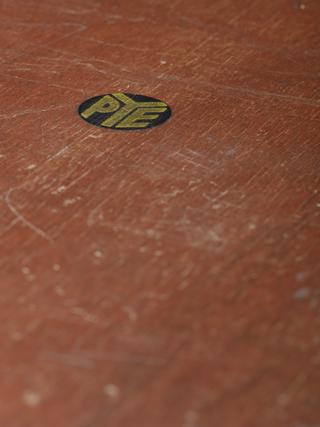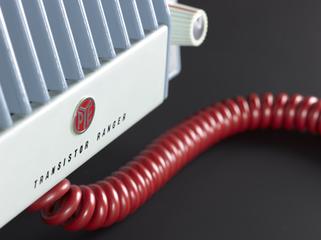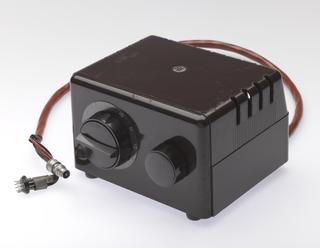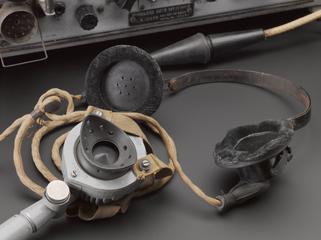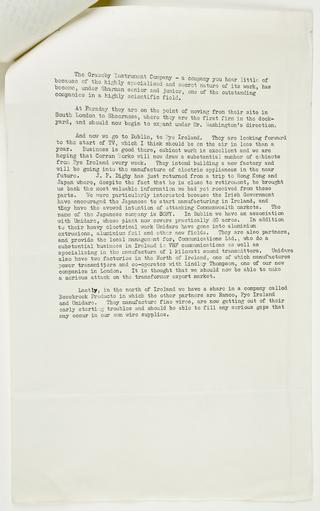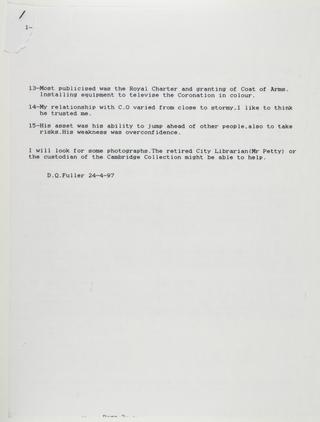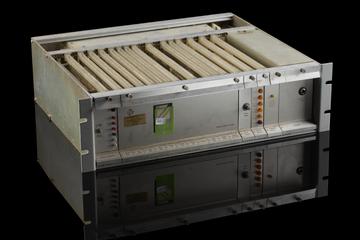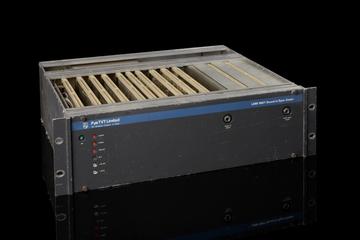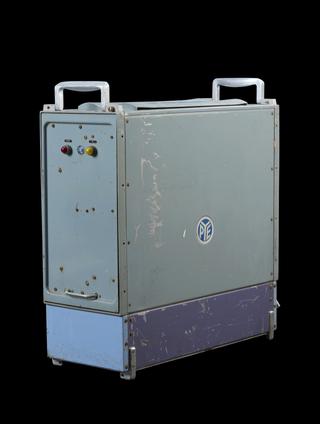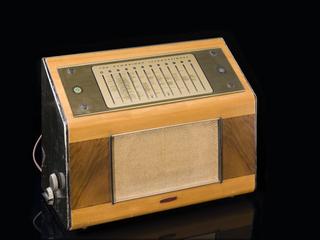
Pye Limited 1896 - 1967
- occupation:
- Manufacturer
- Nationality:
- British
- born in:
- Cambridge, Cambridgeshire, England, United Kingdom
W G Pye and Company Limited was founded in Cambridge, England by William George Pye (1869-1949) in 1896. William George Pye was the superintendent at Cavendish Laboratories and established the company as a part time business. It initially specialised in the manufacture of scientific instruments, but following the First World War during which the company responded to the War Office’s request for thermionic valves and therefore generated technical knowledge, began making radios. These radios became available in time for the first UK broadcasts made by the BBC in 1922. In 1928, the company was sold to C. O. Stanley and was renamed Pye Radio Limited.
When the BBC began exploring television broadcasting, the new owner, Stanley, was fascinated and so instructed the company to begin building television receivers. In 1937, the company had successfully built a five-inch Pye television receiver that began to be marketed.
During the Second World War, the EF50 valves used in the company’s television receiver, became a key component of radar receivers. As well as these, the company also continued in the manufacture of radio equipment for the British Army. In 1944, the company created a subsidiary, Pye Telecommunications Ltd, to design and produce radio communications equipment for after the war. This company grew and became the leading producer in Britain of mobile radio equipment.
Following the war, the company continued to manufacture television receivers before turning to music production in 1955 through Pye Records. At a similar time, the new television channel, ITV, began broadcasting which led to the need for tuners. So, the company began to produce television tuners with the first launched in 1954. However, the V14 proved to be unreliable which lost the trust of many dealers and damaged the company’s reputation which meant that they avoided being the first-to-market from this point on.
Another subsidiary, Pye TVT Ltd was formed to produce broadcast television equipment which became popular with broadcasters including the BBC.
By the late 1950s, the company was beginning to struggle. The damage caused to their name by the V14, and the increasing Japanese competition meant that their sales began declining. In 1960, the company merged with EKCO to form the British Electronic Industries Ltd. However, the decline continued and in 1966, Philips attempted to buy out Pye. They agreed to a 60% transfer to stop a de facto monopoly by Philips. Continuing troubles throughout the 1970s, despite the success of its audio equipment, led to Philips taking over the rest of the company in 1976. The Pye name continued and in the late 1980s the Pye televisions gained something of a cult status among students. But, in 1988, the brand became defunct.
